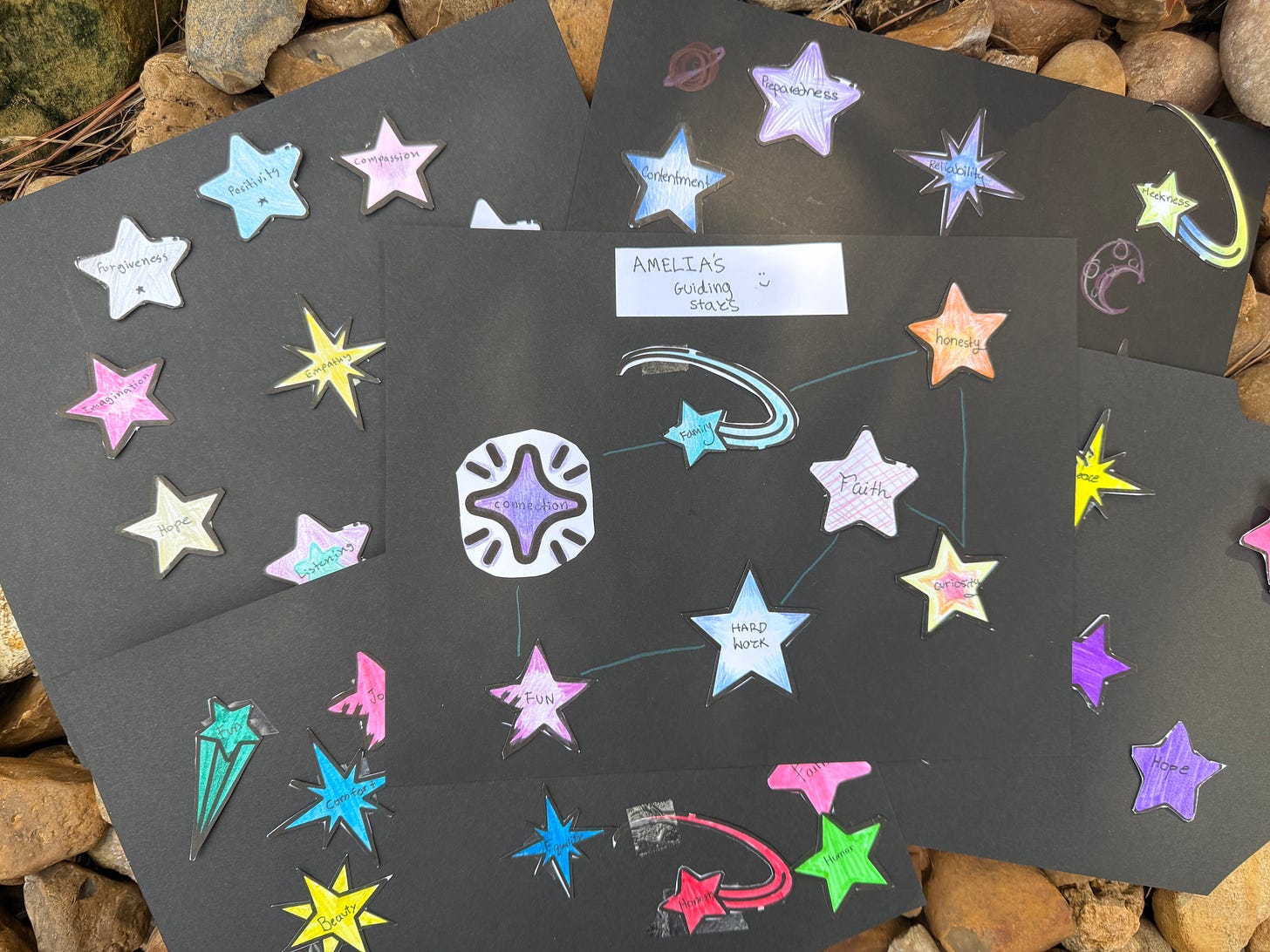Could you find your way home without a map?
Sometimes the stars you follow aren’t in the sky....
If you were dropped in a forest—no phone, no compass, no clues—could you find your way home?
That was the question I tossed out to kick off Cousin Camp this week.
Wayfinding is an ancient navigation method used by Pacific Islanders for long voyages. It doesn’t rely on maps or tech—just the stars and your senses.
With each group of cousins, we studied stars like Polaris, learned how constellations are like nature’s GPS, and talked about voyagers who crossed vast oceans without modern tools. It also helped that we used Moana and Maui as our wayfinding exemplars!
Here’s the question you’re probably asking:
Why should an eight-year-old care about ancient Polynesian navigation?
Because they already do it.
So do you.
Every day, we’re all thrown into unfamiliar territory—new roles, new schools, new jobs, new relationships—and expected to figure it out.
So how do we navigate?
We rely on our own guiding stars.
These are our “North Stars”—our core values. The ones we return to when everything else feels foreign.
They help us make decisions.
They guide how we treat others.
They keep us anchored.
What are your guiding stars?
Unfortunately, most of us never actually stop to name them.
So at camp, we asked the kids to pause and see what’s actually guiding their actions. We asked questions like:
What do you always carry with you?
What do you spend your money and time on?
What habits come naturally to you?
What topics get you fired up?
What are the biggest decisions you’ve made?
Who do you look up to—and why?
None of these questions directly tell you what your values are. But put them together and you start to see patterns.
Like stars forming a constellation.
We even gave the kids a huge list of values to circle and connect, building their own “guiding stars” map.
The result?
Each cousin built their own constellation. Each one unique. Different ages. Different experiences. Different stars.
That’s one of my favorite parts.
Our constellations aren’t supposed to be the same. The sky is more vibrant when it’s filled with different lights.
We also talked about how constellations shift over time—how your stars might change as you grow, explore, and understand more about the world.
And that’s not bad. That’s growth.
So if you’re looking for something meaningful and fun to do this week, try this:
Build your own constellation.
Here’s the one we did as a family earlier this spring:
Keep Asking,
Kyle









A really thoughtful piece, Kyle — it resonated with me. Many of the leadership qualities you have and shared here are ones I strive to embody too. Over the past few years leading a big team, I’ve taken a lot of pride in being the go-to person for supporting colleagues, leadership, board members and team members in every way possible.
Though I’m noticing how much of my energy and focus go into this and leave my little ones, family and home-life without enough of me. Thanks for sharing! Great work, great decision and wishing you all the best!
That is an incredibly brilliant idea.